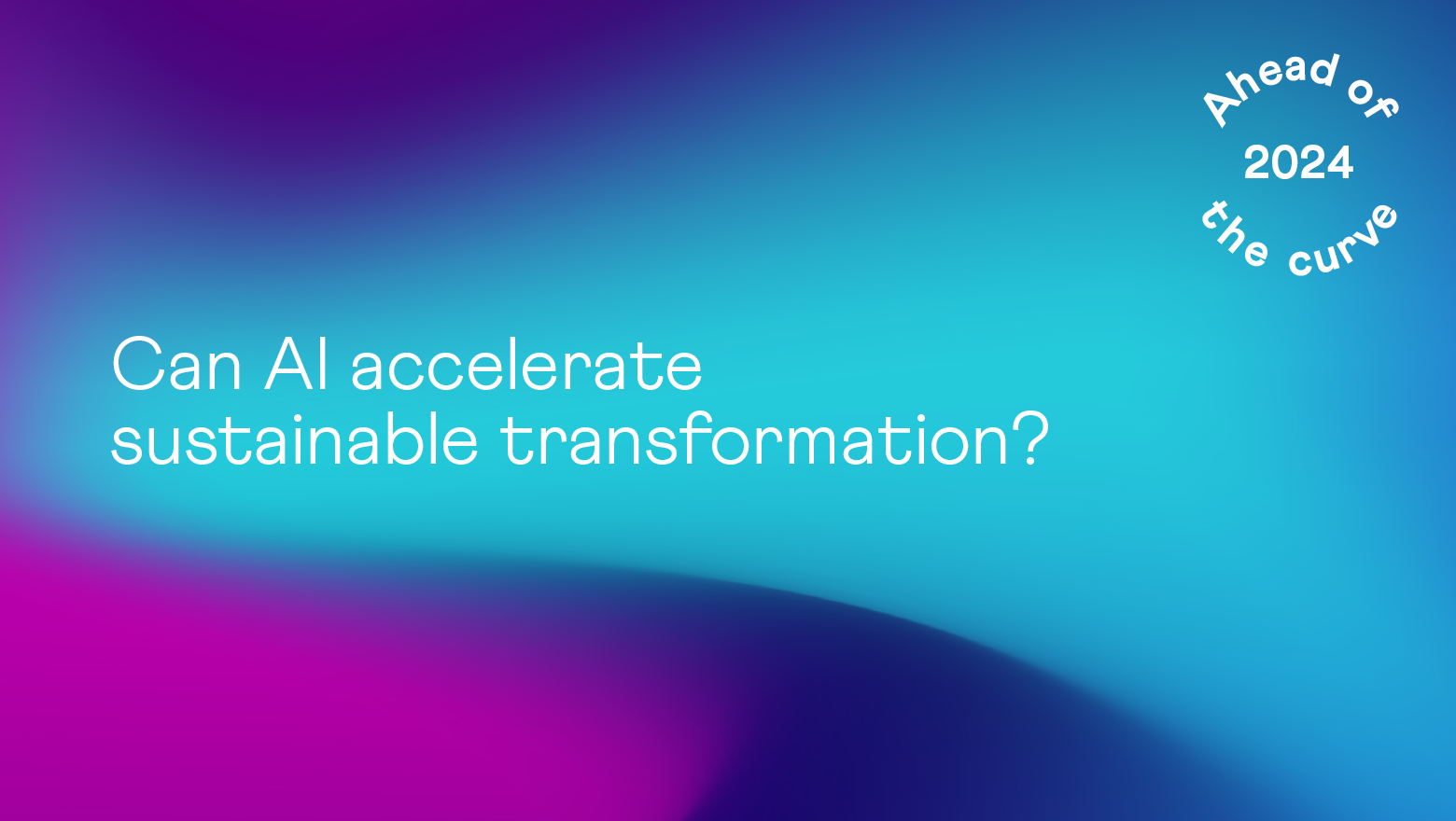
"Whilst the use of AI grows exponentially, there are many debates over whether its use should be policed, how and by whom."
Stay informed with regulations, insights & events by joining our mailer
In the ever-evolving landscape of technological advancements, Artificial Intelligence (AI) holds the promise of transformative impact, from environmental conservation to accelerating social justice initiatives.
Two main questions come to mind when thinking about AI’s application to sustainability:
- how might AI help reduce carbon emissions whilst fostering economic growth?
- how could AI help achieve social justice?
Whilst the use of AI grows exponentially, there are many debates over whether its use should be policed, how and by whom. In November 2023, the world’s first AI Safety Institute launched in the UK, tasked with testing the safety of emerging types of AI, which could shape how AI will be regulated in the future. In the meantime, “responsible AI” – which involves ethically developing and using artificial intelligence with transparency, accountability, fairness and consideration – has become a focal point of debate. How exactly can responsible AI benefit the environment and society?
Environmental efficiencies through intelligent resource management
Cleaner energy grids, precision agriculture, sustainable supply chains, environmental monitoring and improved weather and disaster responses are some of the innovative ways AI can help manage environmental impacts and climate change. Research commissioned by Microsoft and conducted by PwC found that AI applications could reduce worldwide greenhouse gas (GHG) emissions by 4% in 2030 – equivalent to the 2030 emissions of Australia, Canada, and Japan combined – whilst contributing up to $5.2 trillion USD to the global economy. Trials being conducted by Google with American Airlines to chart more sustainable routes that minimise heat-trapping contrails are already proving successful.
Ensuring technology doesn’t exacerbate social injustice
One could be forgiven for thinking a conversation with ChatGPT is by definition impartial. Yet numerous studies suggest that ChatGPT and similar AI tools exhibit bias regarding race, gender, religion and political views. Research by the University of East Anglia, for instance, found that ChatGPT is politically biased towards left-wing politics. This suggests the use of unchecked AI may inadvertently amplify existing social injustice challenges posed by society.
However, used in conjunction with human oversight and ethical considerations, AI can be a valuable tool in tackling human unconscious bias. It is already being used by companies in their recruitment process to anonymise applications in the first round of interviews, offering a “tipping point” for change.
How AI can harness your sustainability ambitions:
- Leveraging data – with the ability to access data from a huge range of public resources, AI can highlight patterns and reveal challenges and opportunities at a scale. By maximising data, AI can offer innovative solutions in supply chain management and energy and resource efficiency.
- Increasing access to talent – utilise AI’s algorithms to identify new platforms from which to reach under-represented groups with recruitment opportunities.
Watch out for:
- Lack of nuance – AI shouldn’t be viewed as a shortcut to replace engagement with stakeholders, who have deeper and more nuanced knowledge of the context of your organisation and its wider aims.
- Unknown unknowns – it’s a great starting point for research that will be challenged and stress-tested at a later stage. But it also yields dramatically different answers if asked in different ways.
In sustainability, there are (sadly) no silver bullets, and AI is no exception. Guided by human experience, expertise and emotional intelligence, it can be a phenomenally powerful tool, but the old adage “garbage in, garbage out” holds true here. And whilst AI is primed to help us navigate the complexities of climate change, we must also be aware of the energy needs and consequent carbon footprint of AI – which is no small matter. If we use it, we must use it well.
How can Ever support you?
Education is key to ensuring boards and senior management teams are prepared for inevitable digital changes that are being brought by artificial intelligence – not only from a risk management perspective but also to understand the available opportunities to help companies achieve their sustainability ambitions.
Get in contact with our team to find out more about our training and development opportunities and how we can help you.

